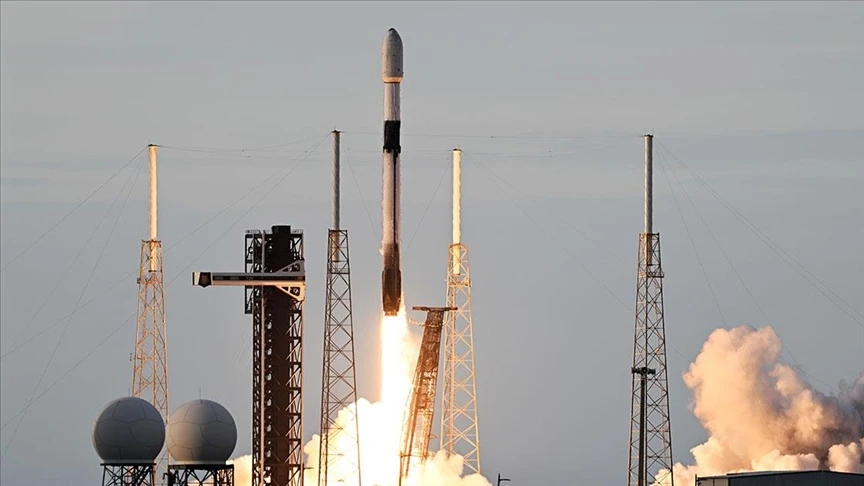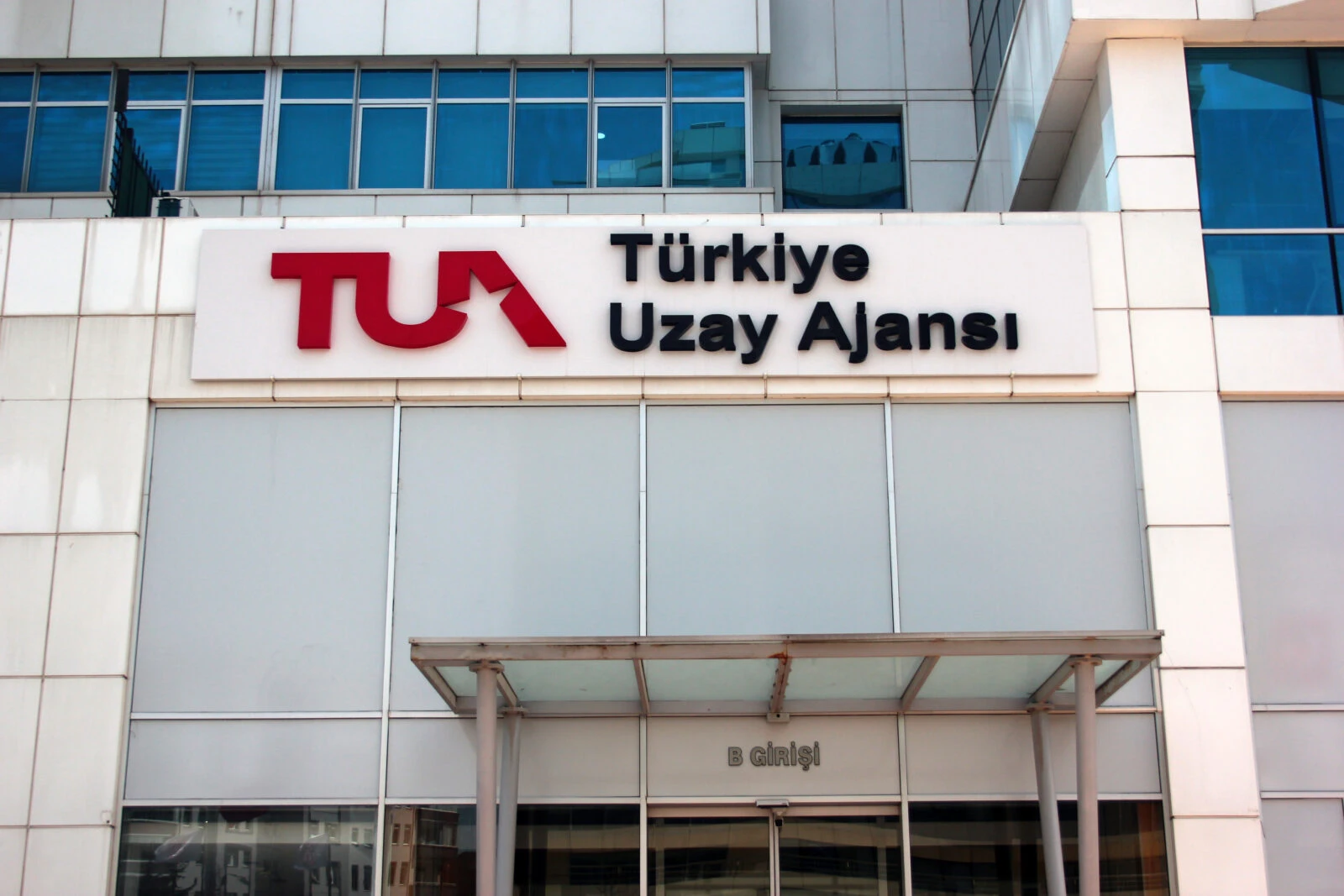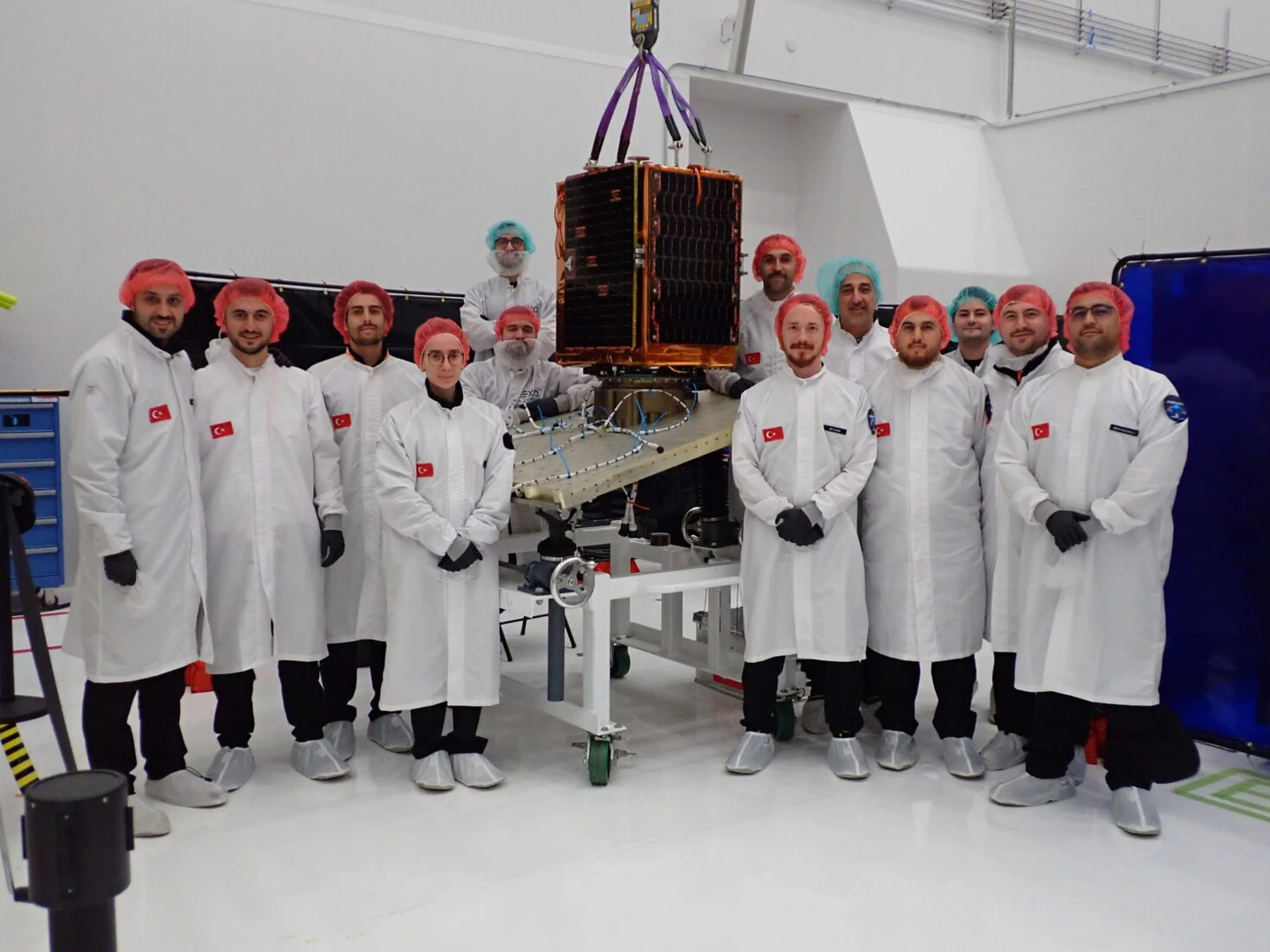Türkiye outlines roadmap for national satellite company
 Türkiye's satellite technology companies Türksat, Turkish Aerospace Industries (TAI), ASELSAN, PROFEN and Fergani Space came together at Satellite 2025, the world's largest satellite exhibition in Washington, D.C. (AA Photo)
Türkiye's satellite technology companies Türksat, Turkish Aerospace Industries (TAI), ASELSAN, PROFEN and Fergani Space came together at Satellite 2025, the world's largest satellite exhibition in Washington, D.C. (AA Photo)
Türkiye plans to establish a national satellite company to commercialize its research and development capabilities in satellite technology and enhance national security, according to the Ministry of Industry and Technology’s “2030 Industry and Technology Strategy.”
The initiative aims to bring all publicly owned entities in the satellite ecosystem under a single umbrella, streamlining operations and increasing coordination.
Officials believe this move will enable more efficient use of existing infrastructure and human capital while also avoiding duplicate investments.
The national satellite company is expected to play a pivotal role in transforming Türkiye into a more competitive actor in the global space market. It will also support the creation of a unified satellite brand for the country, building on the success of several domestic missions.

Türkiye advances in satellite technology
Over the past two decades, Türkiye has made significant progress in satellite development.
With satellites such as BILSAT, RASAT, GOKTURK, and the sub-meter resolution imaging satellite IMECE, Türkiye has positioned itself among the few countries capable of designing and producing its own Earth observation satellites and ground stations.
The development of TURKSAT 6A using domestic resources is seen as a key step toward establishing a national satellite brand and strengthening Türkiye’s independence in space communications.
Technopark to support space innovation
As part of efforts to replicate its defense industry success in space technologies, the government plans to establish a dedicated space technopark in Ankara.
Operated under the guidance of the Türkiye Space Agency (TUA), the facility will support the development of advanced technologies, help train qualified personnel, and foster collaboration across institutions and industries.
The majority of R&D activities needed for Türkiye’s long-term space policies will be carried out within this hub.
The government expects the technopark to contribute significantly to Türkiye’s share in the global space economy through innovation in critical systems.

Strategic and defense implications
Integrating space technologies into defense is expected to provide strategic advantages, particularly in intelligence gathering, border security, and operational planning.
High-resolution Earth observation satellites developed domestically will play a key role in enhancing military and security operations.
Support for satellite development projects
The government also plans to support projects under the Pre-Competition Cooperation Support Program focused on low Earth orbit (LEO) satellite technologies. These include critical subsystems, ground systems, and secure communication infrastructures.
Projects involving satellites under 200 kilograms will be eligible for funding throughout all phases—from design and development to prototyping, testing, and in-orbit operations.
Under the HIT-30 High Technology Support Program, “communication and space” has been defined as a priority sector. Funding will be directed toward investments in LEO satellite systems, next-generation communication networks, and smart communication devices.

Investment in fusion energy research
In addition to satellite development, the Türkiye Space Agency will establish a laser HB11 fusion energy conversion laboratory, laying the groundwork for future innovations in space energy systems.



